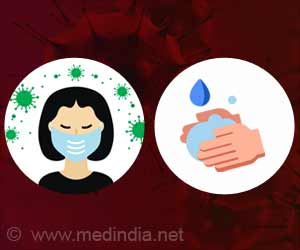COVID-19 Pandemic: Cancer patients are particularly at a higher risk of getting infected by the deadly coronavirus.
- Cancer patients are more susceptible to COVID-19
- Undergoing cancer treatments may often weaken the immune system of people with cancer
- Cancer patients who are immunocompromised (weak immunity) need to follow proper hand washing techniques, avoid visiting crowded areas and stay away from people with cough to survive COVID-19 pandemic
Read More..
Oncologists Gary Schiller, MD, and Joshua Sasine, MD, PhD, help explain what cancer patients need to know about COVID-19.
Dr. Schiller is a professor of hematology/oncology at the David Geffen School of Medicine at UCLA and director of the hematological malignancies/stem cell transplantation unit, and Dr. Sasine is an assistant professor of medicine and director of the CAR T cell program at the UCLA Jonsson Comprehensive Cancer Center.
Which cancer patients should be concerned about coronavirus?
Sasine: The patients most at risk are those with bone marrow cancers or who have had a bone marrow transplant within the last 12 months. If patients have cancer and are on active chemotherapy, they are also at a higher risk than the general population. This is especially true if they are over the age of 60.
What does it mean to have a compromised immune system?
Are there precautions cancer patients should be taking?
Schiller: Patients who are immunocompromised need to be wary of going into crowds, should maintain good hand washing techniques and should stay away from individuals who have a cough.
Sasine: For most events, canceling plans is ideal. However, sometimes one must weigh the risks and benefits. If there is a very important event (son or daughter is getting married, etc.) this might be a risk worth taking.
Should cancer patients delay travel plans?
Schiller: For patients with malignancies of the blood and bone marrow, and patients who had bone marrow transplants, I absolutely tell them to delay travel. Don’t travel right now.
Is it safe for patients to come to the hospital and clinics for treatment?
Schiller: Yes. We’ve been working to develop better isolation procedures and policies to isolate the potentially sick patients from our immunocompromised patients. For example, bringing the potentially sick patients in through a different entrance to isolate them in the waiting room and put them in an isolation room for evaluation.
Should patients be wearing a mask or stockpile hand sanitizer?
Schiller: A mask is not sufficient protection and we’re concerned that if you wear a mask, especially one that is insufficiently protective, then you have a false sense of security and you may put yourself in a position that might compromise your safety. In regards to hand sanitizer, I would like my patients to stockpile on soap and water. That would be more effective than using hand sanitizer repeatedly.
Reference:
- Cancer and COVID-19: What you should know - (https://cancer.ucla.edu/Home/Components/News/News/1464/1631)
Source-Newswise















